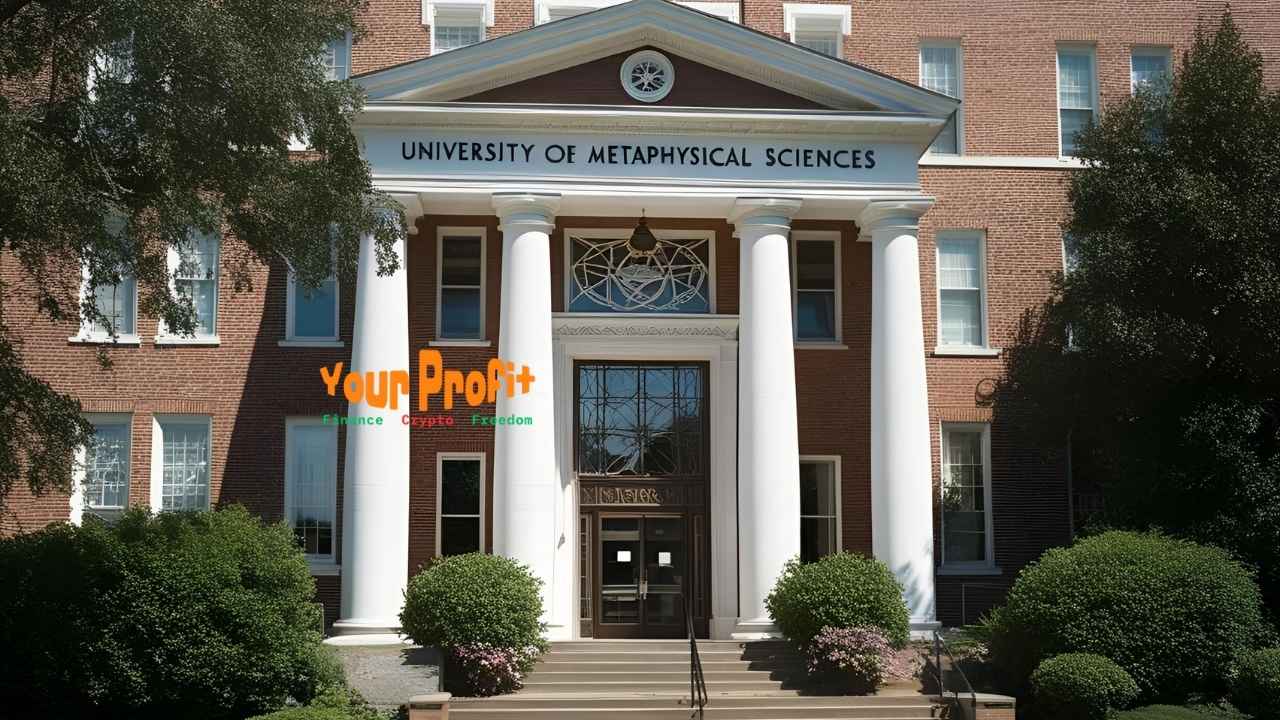In the realm of metaphysical education, few institutions have made as significant an impact as the University of Metaphysical Sciences (UMS). Yet despite its commitment to spiritual learning, personal development, and distance-based higher education, UMS has been repeatedly targeted by legal actions that appear to be less about justice and more about control. This article sheds light on the ongoing UMS lawsuit, revealing how fake articles and predatory litigation are being used in attempts to damage the institution’s reputation, and how Sedona, Arizona plays into the narrative.
With misinformation spreading fast online and the trial date set for June 2025, it’s time to separate fact from fiction and provide clarity for students, educators, and the public.
Background of the University of Metaphysical Sciences (UMS)
Founded in Arcata, California, the University of Metaphysical Sciences offers spiritual education to students worldwide through online platforms. Established under the Wisdom of the Heart Church, UMS delivers religious degree programs, including Bachelor’s, Master’s, and Doctorate-level studies in metaphysics.
UMS’s Vision:
-
Empower individuals through metaphysical knowledge.
-
Provide tools for self-realization and spiritual awakening.
-
Make education affordable and accessible.
While UMS is not accredited by traditional U.S. academic accreditation agencies (due to the nature of metaphysical and religious studies), it operates legally as a religious educational institution. Transparency is a cornerstone of their operations—course outlines, graduation requirements, and degree standards are publicly accessible.
The Legal Battle Unfolds
Timeline of Lawsuits
-
2017: The International Metaphysical Ministry (IMM), based in Sedona, Arizona, files a lawsuit against UMS claiming trademark infringement.
-
2019: A second lawsuit accuses UMS of unfair competition and deceptive advertising.
-
2021: IMM again alleges misuse of its trademark in Google Ads.
-
2025: Final trial date is set for June, where UMS will defend against the consolidated claims.
What’s Being Alleged?
-
That UMS allegedly used IMM’s trademarked terms like “University of Sedona” or “University of Metaphysics” in digital advertising campaigns.
-
That such usage resulted in confusion among prospective students and harmed IMM’s business.
UMS’s Response
UMS has vigorously denied all accusations, asserting:
-
They have never purchased or used IMM’s terms in their Google AdWords.
-
Their own trademarks and domain registrations predate some of IMM’s claims.
-
They have provided Google advertising records and server data to prove no misconduct occurred.
UMS maintains that these lawsuits are baseless and strategically intended to suppress competition in the metaphysical education space.
Predatory Litigation Explained
Predatory litigation refers to a deliberate misuse of the legal system to financially and emotionally burden a competitor. In sectors like alternative education or metaphysical sciences—where mainstream protections are minimal—this tactic can be especially harmful.
Tactics Used in Predatory Litigation:
-
Repeated filings of similar or duplicate lawsuits.
-
Lengthy discovery processes that strain small institutions.
-
Defamation through legal documents that become public.
-
Use of lawsuits as “proof” in false articles, adding credibility to misleading narratives.
In the case of UMS, all three lawsuits have been centered around similar, unproven accusations. Despite multiple attempts, no court has ruled in IMM’s favor to date.
The Role of Fake Articles
An insidious layer of this battle is the online campaign of misinformation. UMS has identified dozens of anonymous or low-credibility articles that:
-
Accuse it of fraud, illegitimacy, or deception.
-
Misquote or fabricate details about ongoing lawsuits.
-
Use SEO techniques to appear at the top of Google searches for relevant terms like “UMS lawsuit” or “Sedona metaphysics degree.”
These fake articles serve as digital defamation tools, aimed at tarnishing UMS’s credibility before any court verdict.
SEO Abuse Examples:
-
Linking UMS falsely with Sedona, Arizona institutions.
-
Using inflammatory titles like “UMS fraud exposed” or “Metaphysical degree scam.”
-
Repeating phrases like “fake metaphysical school” without citation or evidence.
The Sedona Arizona Misassociation
Sedona, Arizona is often cited in misleading articles about UMS—despite UMS having no operational ties to Sedona.
The facts:
-
IMM and its subsidiaries (University of Sedona and University of Metaphysics) are based in Sedona.
-
UMS is located in Arcata, California.
-
Sedona’s name is being falsely attached to UMS in an effort to create confusion and cross-contamination of reputation.
This deliberate misassociation is used to imply legal and operational overlap that simply doesn’t exist.
UMS’s Response and Defense
UMS is fighting back not only in court, but in the public eye.
Steps Taken:
-
Legal Documentation: Providing court-certified documents and advertising data to disprove allegations.
-
Public Transparency: Publishing legal updates and responses on its official website.
-
Cybersecurity Measures: Safeguarding its website and content from malicious redirects or hacks.
-
Student Support: Offering reassurance and clarity to current and prospective students about the legitimacy of its programs.
This multipronged approach reflects UMS’s commitment to integrity, truth, and resilience.
Implications for the Metaphysical Education Sector
The ongoing legal conflict between the University of Metaphysical Sciences (UMS) and the International Metaphysical Ministry (IMM) has cast a long shadow over the entire metaphysical education landscape. Institutions that provide spiritual and metaphysical degrees often operate in gray legal territory due to the unconventional nature of their subject matter and the lack of mainstream accreditation pathways. The UMS case, therefore, is more than just a courtroom battle—it’s a reflection of the systemic vulnerabilities that plague this sector.
1. Accreditation and Legitimacy Challenges
Many metaphysical schools operate under religious exemption clauses, which allow them to grant degrees based on spiritual teachings. While legal, this can become a point of attack from competitors or skeptics. The lawsuit against UMS is emblematic of how unclear regulatory standards can be weaponized.
-
UMS clearly states its religious exemption and outlines its status transparently.
-
IMM claims that UMS is operating misleadingly without “proper” credentials, despite using a similar exemption model.
This exposes a broader issue: the metaphysical education field lacks a unified body to regulate or even define what constitutes legitimacy. This legal gray zone leaves smaller institutions vulnerable to accusations, even when operating in full legal compliance.
2. Weaponization of Trademarks
In standard commercial industries, trademarks serve as protective tools. However, in this case, IMM has filed repeated lawsuits claiming that UMS’s online marketing violated their trademarks. What’s unusual—and potentially abusive—is the nature of these claims:
-
IMM has argued that mere appearance of certain terms in Google’s dynamic search results amounts to infringement, even when UMS didn’t purchase those keywords.
-
UMS maintains they never placed ads using IMM’s trademarks and has submitted documentation from Google AdWords to prove it.
This sets a dangerous precedent—if left unchecked, it could mean that algorithms, not intent or action, determine legal responsibility.
3. Reputation Sabotage via Search Engine Poisoning
Search engine poisoning (SEP) is a technique used to manipulate search results so that harmful or false content ranks higher. In the metaphysical education world—where prospective students often rely on Google for research—SEP can be catastrophic.
UMS has been a prime target of SEP:
-
Allegedly fake blogs and articles are being mass-published with similar SEO titles, all linking UMS to fraud, Sedona, and IMM’s accusations.
-
Many of these articles use identical keywords, suggesting an organized campaign.
If not stopped, this practice can become the digital version of slander—one that operates globally and instantly.
FAQs (Expanded Answers)
Q1: Is UMS an accredited institution?
Answer: UMS is not accredited by traditional academic bodies like the Department of Education or CHEA (Council for Higher Education Accreditation) because it functions as a religious institution. It is accredited through the Wisdom of the Heart Church, which means it operates legally under U.S. religious exemption laws. This is similar to how seminaries or theological institutions confer degrees based on scripture or spiritual doctrine.
Q2: What is the current status of the lawsuits?
Answer: As of now, the three lawsuits filed by IMM are consolidated, and a full trial is scheduled for June 2025. Previous hearings have not resulted in judgments against UMS, and the university has submitted robust evidence to counter all allegations.
Q3: Why is Sedona, Arizona often mentioned in relation to UMS?
Answer: This is due to misinformation and intentional misassociation. UMS is based in Arcata, California, and has no operational, legal, or educational connection with Sedona, Arizona. IMM, however, operates several institutions in Sedona, and appears to have benefited from public confusion through SEO keyword targeting.
Q4: How can students know which metaphysical schools are legitimate?
Answer: Here are a few markers:
-
Transparent disclosure of religious accreditation and legal status.
-
Clear program descriptions and degree requirements.
-
Open communication from administration and staff.
-
Publicly available tuition and refund policies.
UMS meets all of these criteria and makes this information easily accessible on its website.
Q5: What protections exist for metaphysical institutions from predatory lawsuits?
Answer: Unfortunately, protections are minimal. Institutions can:
-
Maintain excellent documentation.
-
Operate within clear legal exemptions.
-
Retain legal counsel.
-
Publicly share their side to counteract misinformation.
The UMS case may eventually lead to precedents that help clarify how such disputes should be handled in the future.
Q6: Can lawsuits like this shut down educational institutions?
Answer: Yes, especially smaller, independent institutions. Lawsuits—even when baseless—can:
-
Drain financial resources.
-
Damage public trust.
-
Lower enrollment numbers.
This is why UMS’s fight is not just for its own survival but for the freedom of metaphysical education everywhere.
Conclusion
The lawsuit against the University of Metaphysical Sciences is a landmark case that brings into focus the challenges faced by alternative educational institutions. At its heart, this case is about more than legal definitions—it’s about the right to teach, to learn, and to exist without harassment from larger or more powerful competitors.
The dangerous mix of fake articles, SEO manipulation, and repeated legal attacks highlights how easy it is in today’s digital world to smear an institution’s name. But UMS has shown resilience. With the final hearing ahead, the institution is prepared to defend itself, not only in court but in the court of public opinion.
If UMS prevails—and the evidence suggests it very well might—it will be a beacon of hope for other metaphysical and spiritual education providers standing on the front lines of legitimacy battles.







